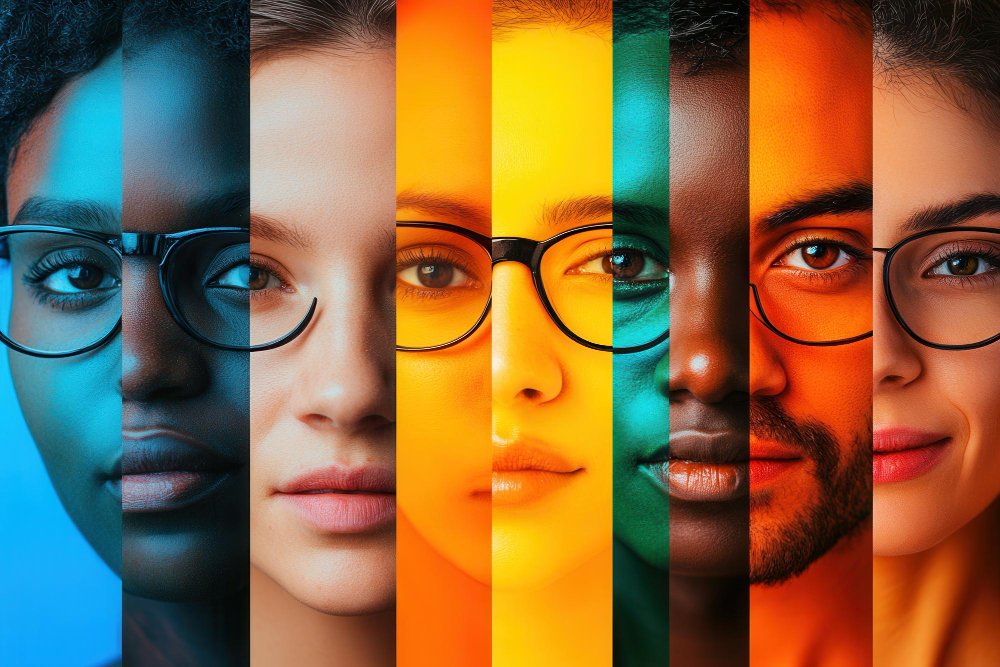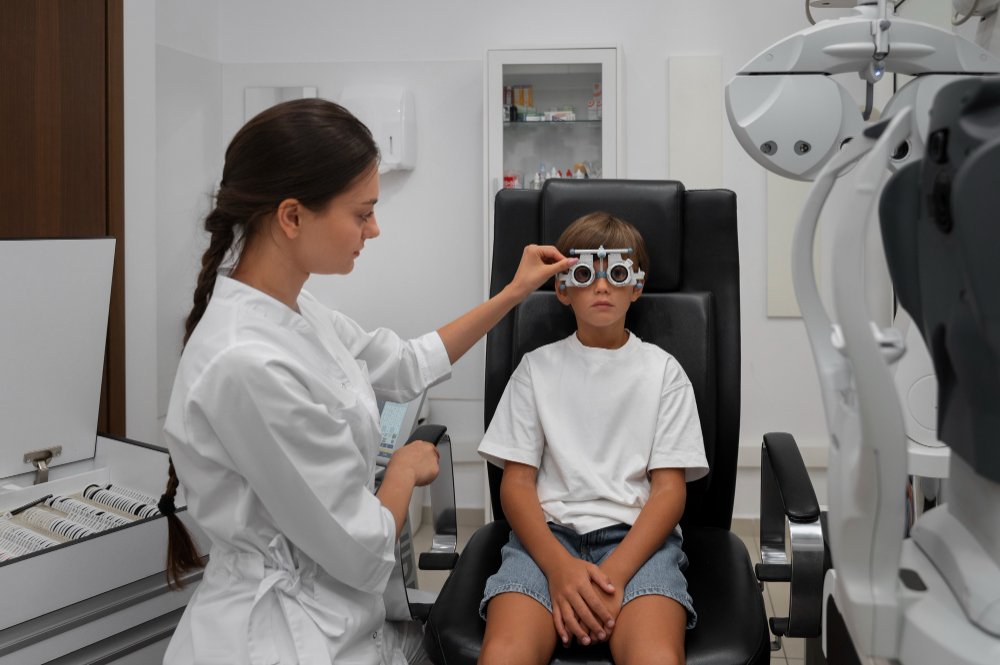Color blindness affects millions of people worldwide, and for some, it goes unnoticed for years. If you find yourself struggling to differentiate between certain colors, you might wonder: “Am I color blind?” Understanding this condition and recognizing the signs is the first step. A comprehensive eye exam can provide clarity and confirm whether you have a color vision deficiency.
Let’s explore how to determine if you’re color blind, what causes it, and what steps you can take if you suspect you have this condition.
What Are the Signs of Color Blindness?
Color blindness can manifest in various ways depending on its type and severity. Some common signs include:
- Difficulty distinguishing between red and green shades
- Problems telling blue from yellow
- Colors appearing less vibrant than they are to others
- Different shades of the same color looking identical
If you notice any of these symptoms, it’s important to get your vision checked. You might also observe these challenges in children when they are learning colors, as they may mix them up more than usual.
What Causes Color Blindness?
Color blindness happens when the cones in the retina, responsible for detecting colors, don’t function properly. There are three types of cones in your eyes, each sensitive to red, green, or blue light. If one or more of these cones is missing or damaged, it can result in difficulty seeing colors correctly.
Most people inherit color blindness from their parents, but it can also be caused by age, disease, injury, or certain medications.
How to Test for Color Blindness
If you suspect you may be color blind, there are several methods to diagnose the condition. These tests are quick and can be done in a professional setting or online.
1. Ishihara Color Test
The Ishihara Test is the most common way to test for color blindness, especially for red-green color deficiencies. It consists of a series of images made of colored dots that form numbers or shapes. People with normal color vision will easily identify the numbers, while those with color blindness may see different numbers or none at all.
2. Anomaloscope
An anomaloscope is a device used by eye specialists to test red-green color blindness. The test involves matching the brightness and color of two different lights by adjusting controls. People with color vision deficiencies will have difficulty matching the colors correctly.
3. Farnsworth-Munsell 100 Hue Test
This test requires the person to arrange colored caps in order of hue. Those with color blindness will struggle to arrange the colors correctly. The Farnsworth D-15 is a shorter version of this test and is also commonly used.
4. Cambridge Color Test
The Cambridge Test is similar to the Ishihara test but is done on a computer screen. It displays colored circles against a background, and the participant identifies the shape in the circle.
5. Online Color Blindness Tests
Many websites offer online color blindness tests, often similar to the Ishihara plates. While these can give an indication, they are not as accurate as professional testing.
Are There Different Types of Color Blindness?

Yes, color blindness comes in three primary forms:
- Red-Green Color Blindness: This is the most common type, where people have trouble telling red and green apart.
- Blue-Yellow Color Blindness: A less common form where individuals confuse blues with yellows.
- Achromatopsia: The rarest and most severe form, where the person sees the world entirely in black, white, and shades of gray.
Knowing which type you have can help you manage daily activities more effectively.
What Are the Next Steps If You Think You’re Color Blind?
If you suspect you have color blindness, don’t wait. Schedule a comprehensive eye exam with an optometrist to confirm the condition. While there is no cure for inherited color blindness, there are ways to manage it. Special lenses, either as glasses or contact lenses, can enhance color perception and help distinguish between colors better.
Many people with color blindness adapt by using tools like mobile apps designed to assist with color identification or by memorizing patterns for activities like navigating traffic lights.
Can Color Blindness Affect Your Daily Life?
For many people, color blindness is a minor inconvenience. However, it can impact certain professions, such as electricians, pilots, or graphic designers, where accurate color recognition is essential. Everyday tasks like choosing matching clothes, reading color-coded charts, or distinguishing ripe fruit can also be challenging.
By understanding your type of color blindness, you can develop strategies to make life easier. For instance, labeling clothing by color or using apps that convert colors on screens can be very helpful.
Are There Any Long-Term Health Concerns?
Inherited color blindness typically doesn’t lead to other vision issues, but if your color vision changes over time, it could indicate an underlying health condition, such as glaucoma, macular degeneration, or diabetic retinopathy. If you notice sudden changes in your ability to see colors, it’s crucial to consult an eye doctor immediately. Early diagnosis of these conditions can help prevent further vision loss.
Conclusion
If you’ve ever wondered, “Am I color blind?” A comprehensive eye exam is the best way to find out. Whether you’ve inherited the condition or developed it later in life, color blindness doesn’t have to limit your daily activities. With the right tools, strategies, and guidance from an eye care professional, you can adapt and manage the condition effectively.
Remember, if you’re unsure about your vision or experiencing difficulties seeing colors, it’s always a good idea to consult a healthcare professional to ensure your eye health is in good shape!
Get Clear Vision: Schedule Your Eye Exam at Vision Gallery!
Take the first step toward better vision with a comprehensive eye exam at Vision Gallery in Katy! Whether you’re experiencing vision changes or just need a check-up, our dedicated team of eye care professionals is here to provide personalized care. From diagnosing color blindness to offering tailored vision solutions, we’ve got you covered.
Call us today to schedule your appointment and see the world more clearly!






